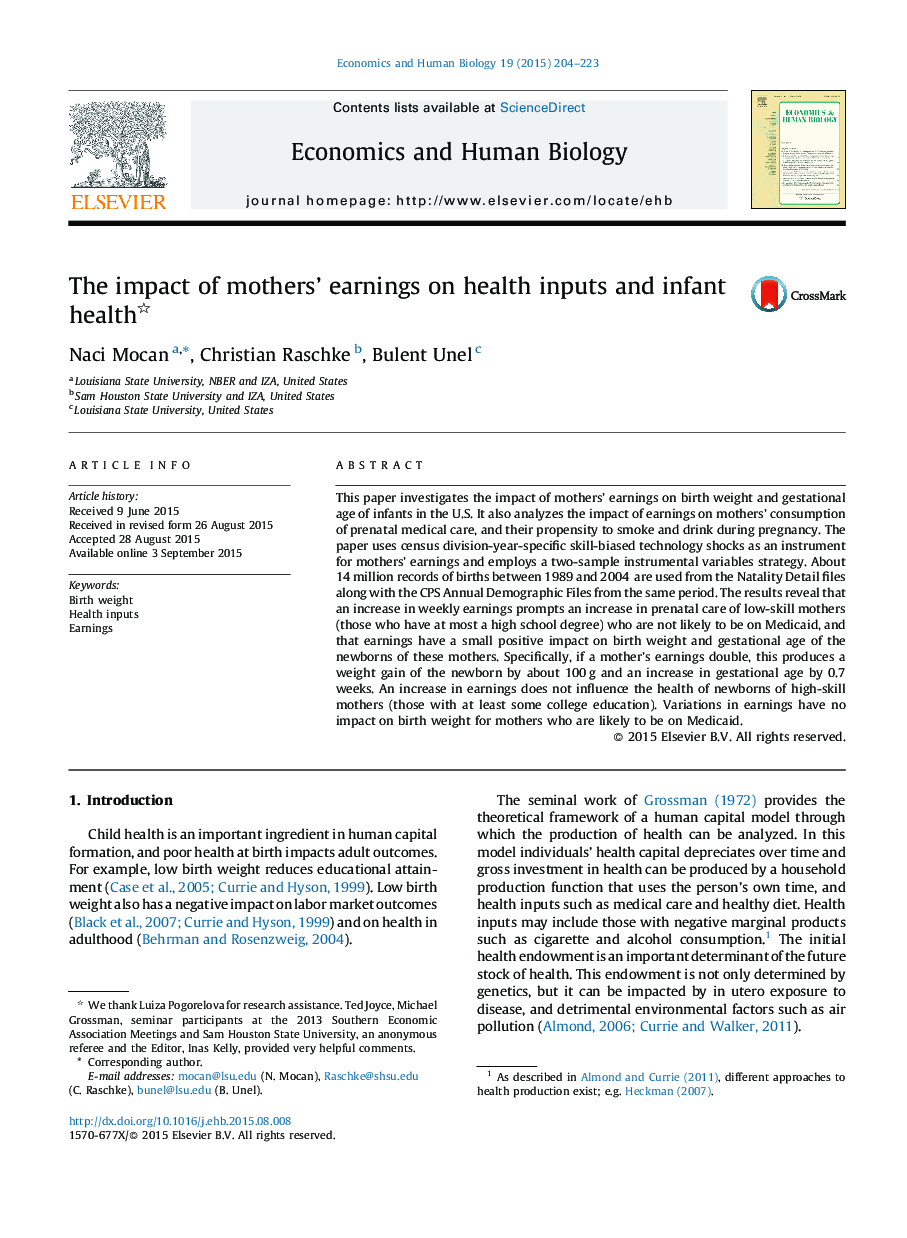| Article ID | Journal | Published Year | Pages | File Type |
|---|---|---|---|---|
| 5056942 | Economics & Human Biology | 2015 | 20 Pages |
â¢We use skill-biased technology shocks as an instrument for mothers' earnings.â¢An increase in earnings prompts an increase in prenatal care of low-skill mothers.â¢Earnings have a small impact on birth weight of newborns of low-skill mothers.â¢Increased earnings do not impact the health of babies of college-educated mothers.â¢Earnings have no impact on birth weight for mothers likely to be on Medicaid.
This paper investigates the impact of mothers' earnings on birth weight and gestational age of infants in the U.S. It also analyzes the impact of earnings on mothers' consumption of prenatal medical care, and their propensity to smoke and drink during pregnancy. The paper uses census division-year-specific skill-biased technology shocks as an instrument for mothers' earnings and employs a two-sample instrumental variables strategy. About 14 million records of births between 1989 and 2004 are used from the Natality Detail files along with the CPS Annual Demographic Files from the same period. The results reveal that an increase in weekly earnings prompts an increase in prenatal care of low-skill mothers (those who have at most a high school degree) who are not likely to be on Medicaid, and that earnings have a small positive impact on birth weight and gestational age of the newborns of these mothers. Specifically, if a mother's earnings double, this produces a weight gain of the newborn by about 100Â g and an increase in gestational age by 0.7 weeks. An increase in earnings does not influence the health of newborns of high-skill mothers (those with at least some college education). Variations in earnings have no impact on birth weight for mothers who are likely to be on Medicaid.
